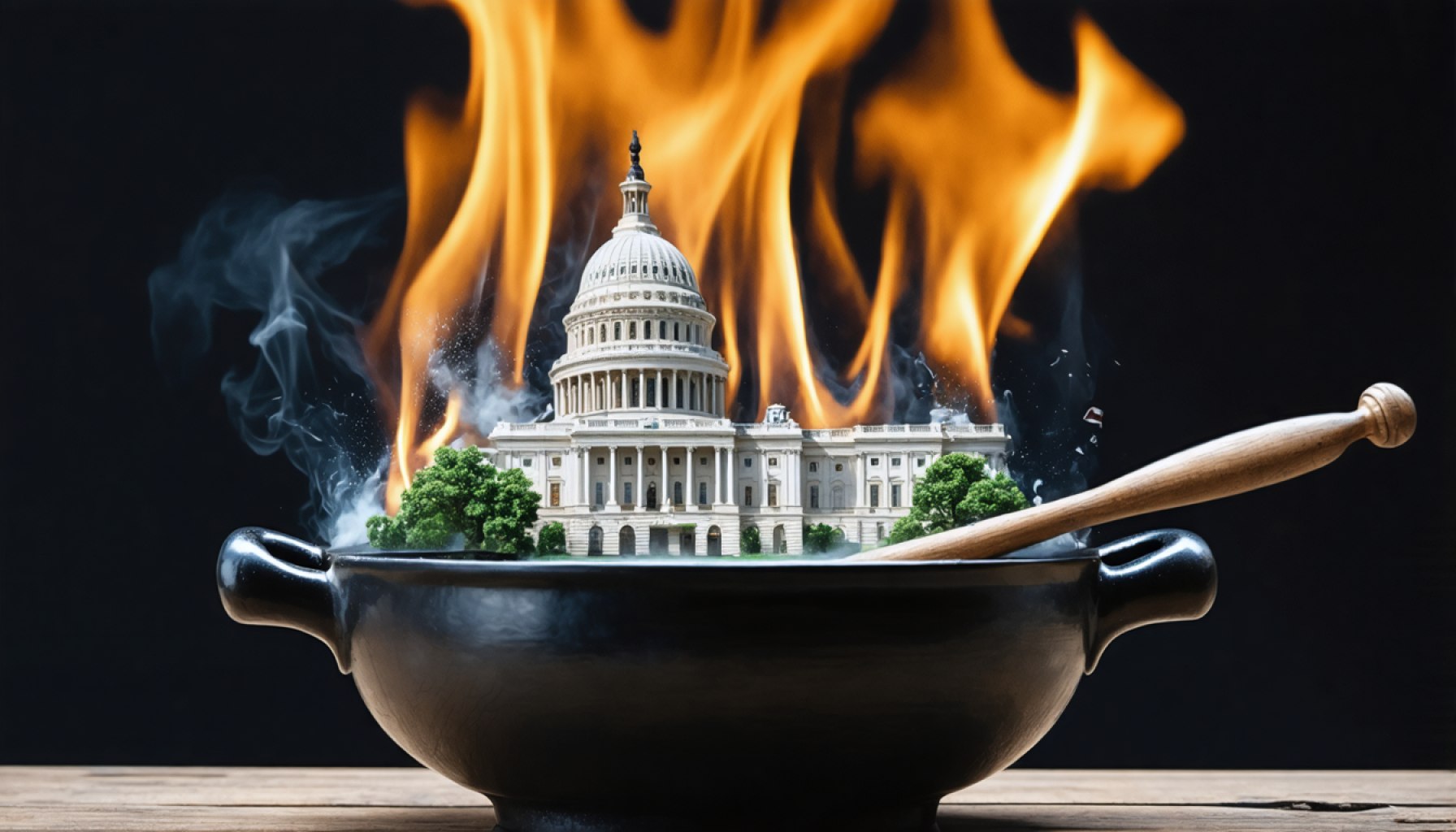- A former Spanish parliamentary leader passionately called to defend and honor those who have served Spain with integrity.
- At his book launch, he underscored resilience amid political criticism and highlighted the legacy of leaders like Zapatero.
- He critiqued current political discord, particularly Felipe González’s criticisms of the prime minister, urging unity over division.
- Drawing parallels between Trump and historical autocrats, he encouraged emotional, fearless discourse in response to U.S. political dynamics.
- The leader emphasized cherishing life and maintaining skepticism towards those displaying moral superiority.
- The event underscored the enduring spirit of political debate, bridging past achievements with future challenges.
In the shadow of Spain’s rich political tapestry, a former parliamentary leader stood resolutely, weaving tales of legacy and fiery rhetoric. Amidst the luminary crowd, his message was unequivocal: defend, support, and honor those who have served Spain with integrity.
As a sea of esteemed guests gathered for the unveiling of his new book—a collection of poignant speeches crafted during pivotal moments—he highlighted the enduring marks left by leaders like Zapatero, urging continued resilience in the face of rising opposition. His words flowed like a river, drawing vivid parallels between the praise-worthy history and the tumultuous present.
He addressed the turbulent political climate, where current leaders face unrelenting criticism. Seldom in political discourse does one hear such fervor for unity, a call to rally around those who may falter yet stand as paragons of honesty and dedication. The atmosphere bristled with anticipation as he gingerly critiqued the discord sown by Felipe González’s sharp criticisms of the current prime minister. It was a plea, almost a cry, to place honor above dissent.
As he wove his narrative, he aimed sharp rebukes across the Atlantic towards the U.S.’s new leadership, catalyzing collective introspection. Comparing the brash demeanor of Trump to infamous autocrats, he implored his audience to approach such challenges with an emotional, fearless discourse.
Closing on a philosophical note, he painted life as paramount over politics. His words resonated: cherish life, skepticism at the ready for those cloaked in moral superiority. This gathering stood testament to the enduring spirit of political debate—a testament both to the past and a nudge to the future.
Unveiling Insights into Spain’s Political Legacy: A Guide to Navigating Current Challenges
Understanding Spain’s Political Atmosphere
In Spain’s dynamic political landscape, former parliamentary leaders emphasize the importance of defending and honoring past and present leaders who have served with integrity. This call to action is juxtaposed against a backdrop of significant political critique and dialogue.
How-to Steps & Life Hacks: Analyzing Political Rhetoric
1. Engage in Historical Contextualization: Understand the legacy of figures like Zapatero by studying their policies and impact. Researching these leaders provides insight into their contribution to Spain’s political tapestry.
2. Cultivate Critical Debate: Encourage discussions about political values and integrity in public forums to foster unity. Emphasize the importance of respectful dialogue to maintain democratic values.
3. Explore Diverse Perspectives: Listen to varying viewpoints, including criticisms from figures like Felipe González, to build a comprehensive understanding of the current political critique.
4. Stay Informed About Global Politics: The critique of U.S. leadership highlights the necessity of keeping abreast of international affairs that impact domestic politics.
Real-World Use Cases: Strategies for Political Engagement
– Educational Initiatives: Develop programs or workshops focused on the history of Spain’s political leaders to educate the public.
– Media Literacy Campaigns: Equip citizens with the tools to critically assess political rhetoric and media coverage, thereby enhancing the quality of public discourse.
Market Forecasts & Industry Trends: Political Literature
The unveiling of a new book containing poignant speeches from moments in Spain’s history suggests a growing market for political literature aimed at reflective analysis and discourse. This trend indicates a broader demand among readers for content that not only informs but also challenges established narratives.
Reviews & Comparisons: Political Leadership
Comparing leadership styles, as done with U.S. leaders, can provide insights into effective governance. The focus on integrity and honor suggests a preference for leaders who prioritize ethical governance over political gain.
Controversies & Limitations: Political Divides
The critique of leaders like Felipe González points toward divisions within Spain’s political discourse. Such divides can hinder cohesive policy-making but also highlight a healthy democratic process where dissent is part of dialogue.
Features, Specs & Pricing: Political Publications
Books capturing historical speeches and analyses often come with detailed annotations and historical context. Pricing for such publications typically reflects the perceived scholarly value and market demand.
Security & Sustainability: The Role of Media
Promoting transparency through media ensures that political dialogue remains grounded in reality. Initiatives toward media accountability are essential in fostering a sustainable atmosphere for political discussion.
Insights & Predictions: Political Unity
There is likely to be an increased emphasis on unity and collaboration in response to domestic and global political challenges. Collaborative frameworks may emerge, focusing on preserving democratic integrity while accommodating critique.
Tutorials & Compatibility: Engaging with Political Material
1. Online Courses: Enroll in courses that explore political history and rhetoric analysis.
2. Discussion Platforms: Join forums or groups dedicated to political debate to practice engaging with diverse opinions.
Pros & Cons Overview: Political Advocacy
Pros:
– Encourages unity and respectful discourse.
– Promotes understanding of historical legacy.
Cons:
– Potential for deepened political divides.
– Challenges in addressing global political critiques effectively.
Actionable Recommendations
– Enhance Media Literacy: Invest time in learning how to discern credible news sources and evaluate political commentary critically.
– Participate in Discussions: Actively engage in community discussions about political events to foster a richer understanding of diverse perspectives.
– Read Political Works: Delve into political literature that offers diverse viewpoints and historical insights, fostering a well-rounded understanding.
Engage with Spain’s political dialogue effectively by incorporating critical analysis, respectful debate, and historical understanding into daily discussions and study, fostering a more informed society.
For more on political insights and leadership, explore publications at Penguin Random House.
